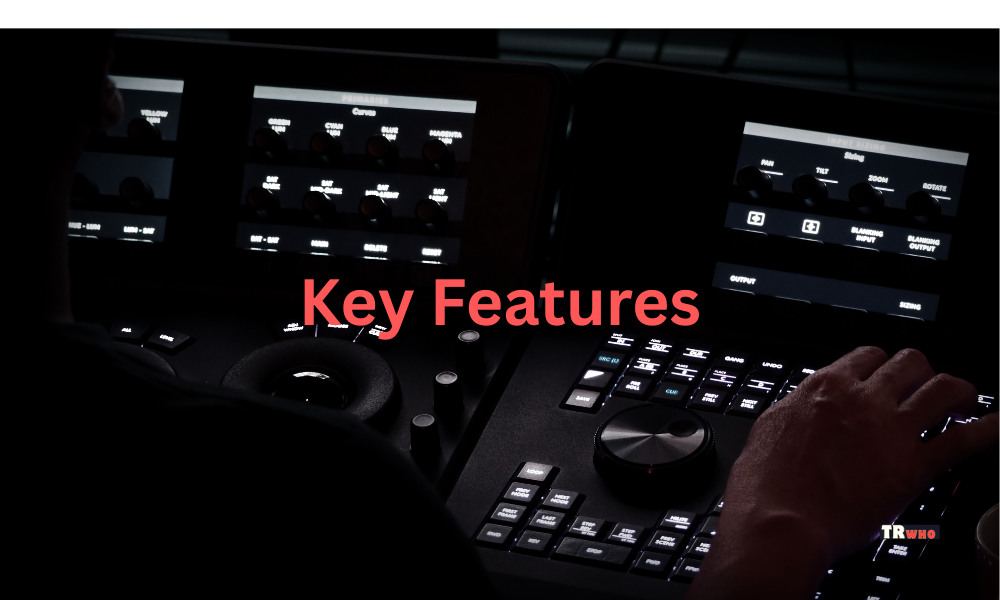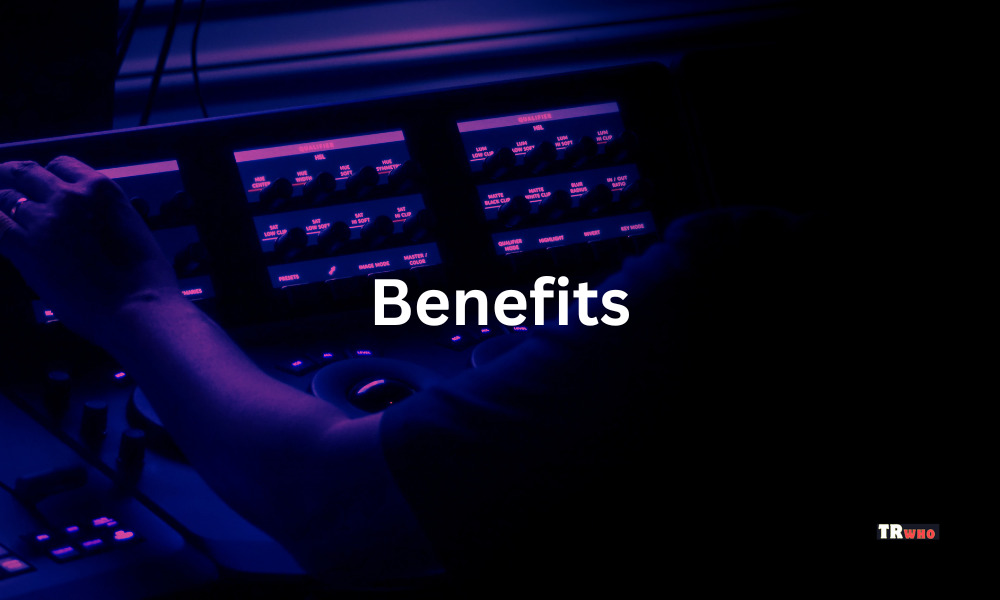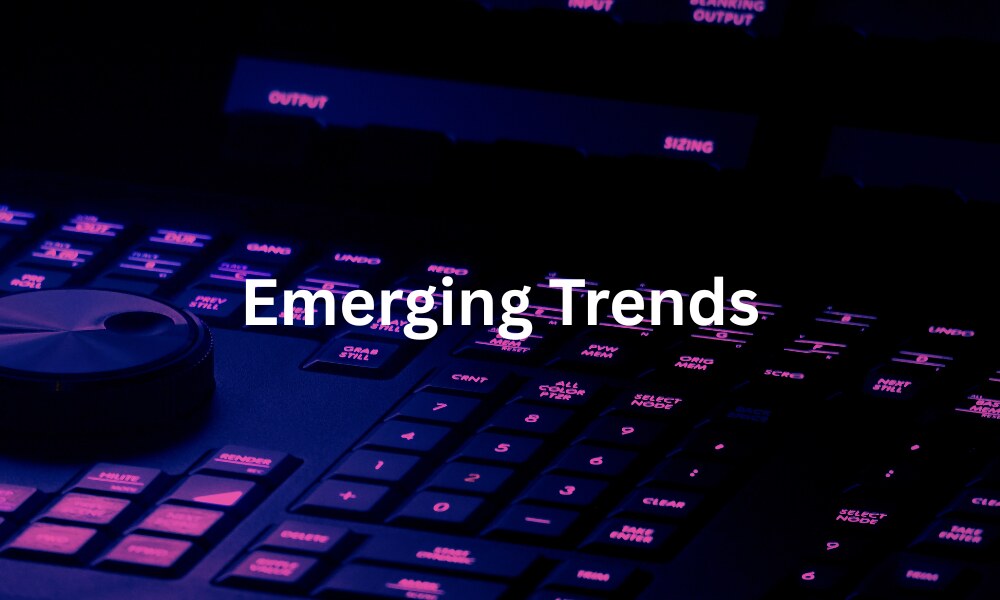Video editing has come a long way. Once, editors spent hours cutting physical film reels by hand. Then came digital tools, making the process faster and more accessible. Today, artificial intelligence (AI) is transforming video editing once again. AI based video editing software is a game-changer, streamlining workflows, enhancing creativity, and opening doors for creators of all skill levels.
In this article, we’ll dive deep into AI-based video editing software. We’ll explore what it is, its standout features, the benefits it offers, and how to integrate it into your workflow. Plus, we’ll peek into the exciting trends shaping its future in 2024 and beyond. Whether you’re a beginner or a pro, this guide will help you decide if AI tools are right for your next project.
Understanding AI Based Video Editing Software
What Is AI Based Video Editing Software?
AI-based video editing software uses artificial intelligence to simplify and enhance video editing. Think of it as a smart assistant that automates tedious tasks, suggests edits, and even creates content based on your input. Unlike traditional tools—where every cut, transition, and effect is done manually—AI integrates seamlessly, speeding up the process.
Manual editing gives you total control but takes time and skill. AI steps in to handle the grunt work, making editing accessible to newcomers while saving pros valuable hours. It’s not about replacing creativity; it’s about amplifying it with technology.
How AI Based Video Editing Software Works
So, how does it pull this off? Machine learning and algorithms are the magic behind it. These systems are trained on massive video datasets, teaching them to spot patterns—like scene changes or audio cues. Here’s what AI can do:
- Scene Detection: It finds where one scene ends and another begins.
- Color Correction: It tweaks lighting and colors for a polished look.
- Audio Syncing: It aligns sound with visuals perfectly.
The best part? You’re still in charge. AI handles the repetitive stuff, but you guide the creative vision. It’s a partnership—think of AI as your co-editor, not your boss.

Key Features of AI Based Video Editing Software
Automated Video Editing and Scene Detection
Imagine uploading raw footage and letting AI do the first pass. It can cut, trim, and assemble clips based on what it “sees”—like a highlight reel made in minutes. Smart scene detection breaks your video into segments, so you don’t have to hunt for that perfect moment. For vloggers or filmmakers with hours of footage, this is a lifesaver.
Intelligent Color Correction and Video Enhancement
Ever shot a video with weird lighting? AI fixes that. It adjusts colors, balances exposure, and even stabilizes shaky footage—all automatically. Tools like DaVinci Resolve use AI to smooth out noise, turning amateur clips into pro-quality visuals. It’s like having a cinematographer on speed dial.
Voice Recognition and Auto-Generated Captions
Want to reach more viewers? AI transcribes speech into subtitles with impressive accuracy, even with background noise. Auto-captions make your videos accessible to people with hearing impairments and boost engagement on platforms like Instagram, where most watch without sound. It’s a small feature with a big impact.
Creative AI Effects, Transitions, and Templates
AI doesn’t just edit—it creates. It offers filters, transitions, and effects tailored to your footage. Want a cinematic vibe? AI can suggest a moody filter. Need a branded look? Custom templates keep your style consistent across projects. I once used an AI tool to add a slick transition to a travel vlog—it took seconds and looked like I’d spent hours.
Real-Time Collaboration and Cloud-Based Editing
Working with a team? Cloud-based AI tools let everyone edit together, no matter where they are. AI manages version control and even suggests tweaks based on group feedback. It’s perfect for remote crews or quick-turnaround projects like social media campaigns.

Benefits of Using AI Based Video Editing Software
Accelerated Editing Workflow and Efficiency
Time is money, right? AI slashes editing time by automating tasks like trimming and syncing. A study from Linearity suggests it can cut editing time by up to 50%. That means faster turnarounds without skimping on quality—ideal for tight deadlines.
Enhanced Productivity and Content Output
AI tags and organizes footage, so you’re not digging through hours of clips. This efficiency lets you churn out more videos. A YouTuber friend of mine doubled her weekly uploads after switching to an AI video editor. It’s like having an extra set of hands.
Improved Video Quality and Professionalism
AI’s knack for stabilization and color grading ensures every video looks sharp. Even if you’re new to editing, your output can rival the pros. Consistency is key too—AI keeps your style uniform across projects, boosting your brand’s credibility.
Accessibility and Inclusivity
Auto-captions aren’t just convenient—they make videos welcoming to all. They help viewers with hearing challenges and non-native speakers alike. Plus, voice recognition can translate dialogue, expanding your audience globally. It’s a win for inclusivity and reach.
Implementing AI Based Video Editing Software in Your Workflow
Choosing the Right AI Video Editing Tool
Not all tools are created equal. Your choice depends on your skills, budget, and project needs. Here’s a rundown of top picks for 2024:
- Adobe Premiere Pro: Pro-level with AI scene detection and color matching.
- Final Cut Pro: Apple-friendly with slick stabilization features.
- DaVinci Resolve: Free, with powerful AI color grading.
- Movavi Video Editor: Simple, affordable, and great for beginners.
New to editing? Start with Movavi. Need advanced control? Go for Premiere Pro. Match the tool to your goals.
Tips for Maximizing AI Video Editing Software
Here’s how to make AI work for you:
- Start with AI, then tweak: Let it handle the basics, then add your flair.
- Use templates smartly: Keep branding consistent without extra effort.
- Trust but verify: AI’s suggestions are great, but double-check they fit your vision.
I learned this the hard way—once, AI overcorrected my colors, and I had to dial it back. Balance is everything.
Overcoming Challenges and Ethical Considerations
AI isn’t perfect. Some worry it’ll replace jobs, but I see it as a helper, not a threat. Ethically, be upfront if AI heavily shapes your work—transparency builds trust. Also, watch for biases in AI decisions, like skewed captions, and correct them manually if needed.

Emerging Trends in AI Based Video Editing Software for 2024 and Beyond
Enhanced Automation and AI Video Synthesis
Automation is getting smarter. Soon, AI might craft entire videos from a script or a few clips. Imagine feeding it a storyline, and it picks scenes, adds music, and edits—all on its own. It’s not there yet, but 2024 could bring us close.
Integration of Real-Time Collaboration Features
Remote work isn’t going away, and AI is stepping up. Expect cloud tools with AI that not only sync teams but also predict edits based on feedback. It’ll make group projects smoother than ever.
Growing Role of AI in Creative Innovation
AI’s creative side is exploding. New effects, transitions, and even audience-driven edits are coming. For video marketing, AI could analyze viewer reactions and tweak content on the fly. Social media creators will love this—it’s like having a trend-spotter built in.
Conclusion
AI-based video editing software is changing the game. It speeds up workflows, boosts quality, and makes editing accessible to everyone. From automated cuts to creative effects, it’s a tool that empowers, not replaces, human talent. As 2024 unfolds, trends like smarter automation and real-time collaboration will only amplify its impact.
Ready to try it? Pick a tool, experiment, and see how AI can transform your videos. The future of editing is here—jump in and make it yours.